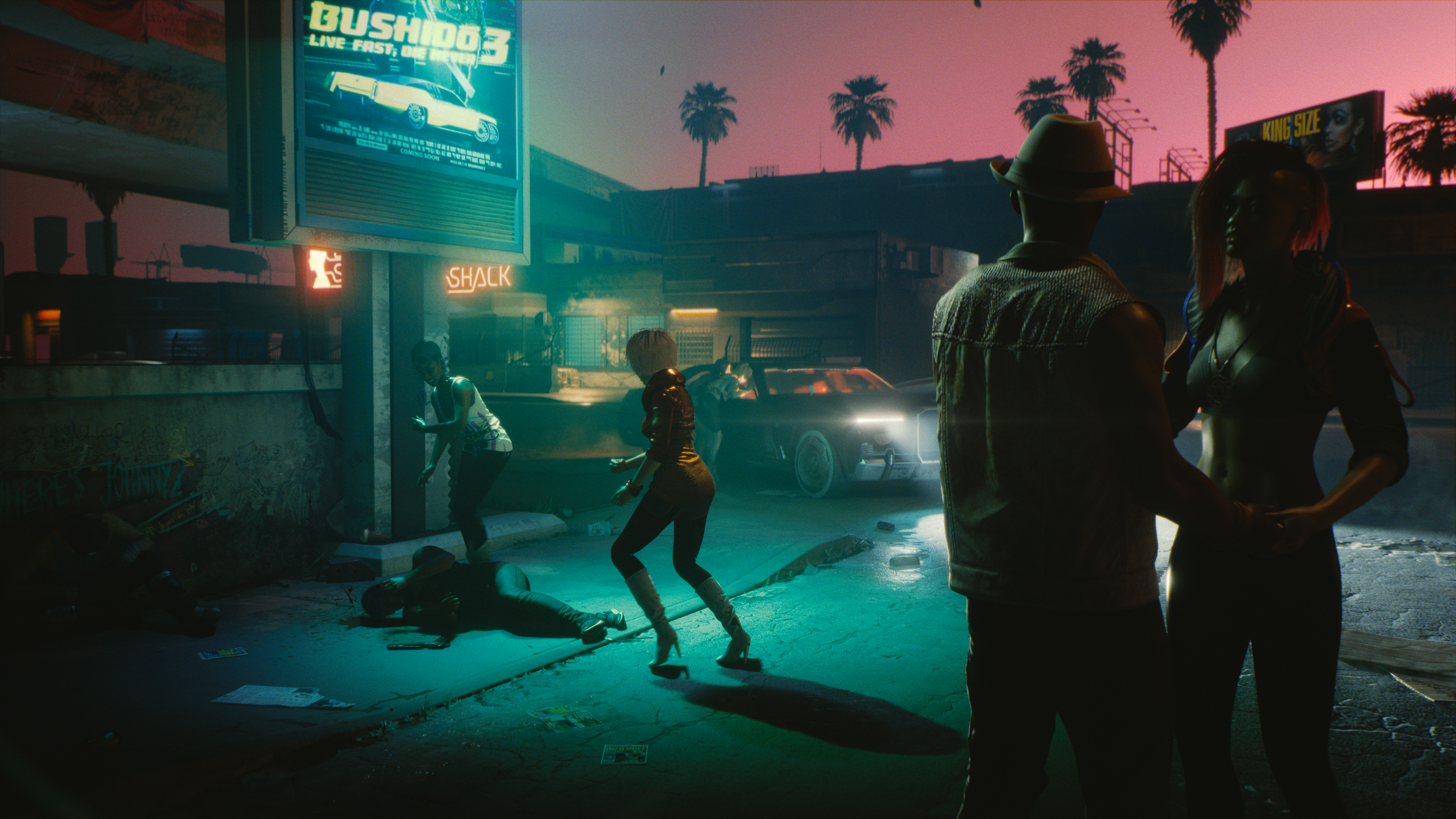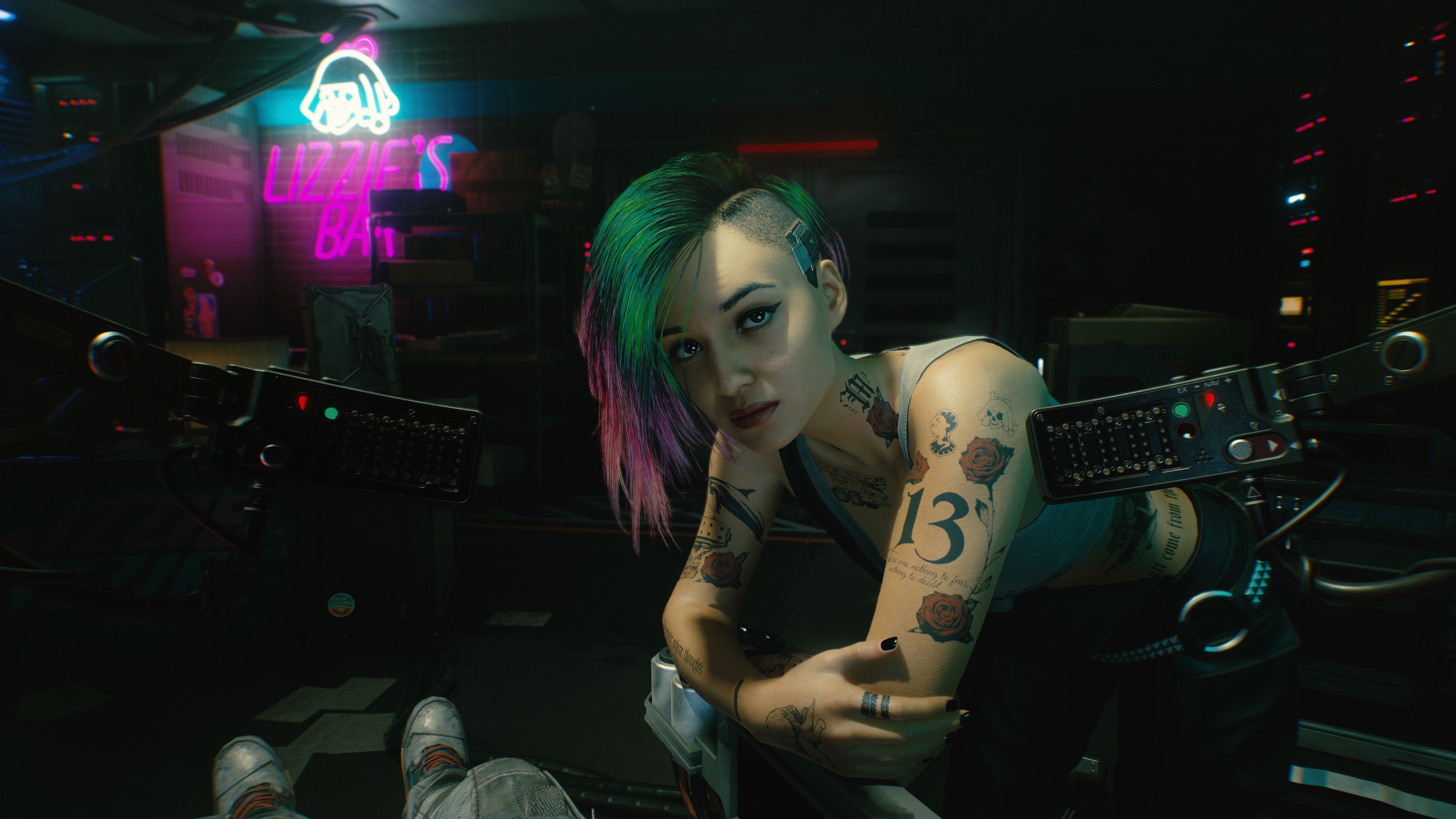A line in the very first public demo for Cyberpunk 2077 really stuck with me. As V leaves their apartment and walks onto the bustling streets of Night City, the narrator describes the game as having “the most believable city in any open world game to date,” one hyperbolic descriptor of many that would emerge during CD Projekt Red’s pre-launch marketing blitz.
It was a lie. Or perhaps it wasn’t at the time, but instead an overly ambitious benchmark for what this game could be despite the lack of development resources and expertise in a genre that would inevitably see the studio doomed by its own excessive hubris. Cyberpunk 2077 isn’t realistic, it isn’t lifelike, and it often struggles to feel alive because of all the technical problems that continue to plague its neon-lit streets. But I wish it did, because there’s so much potential in this game that remains untapped, and I don’t see that changing.
Earlier this week saw the release of Cyberpunk 2077’s long awaited next-gen update. Many expected it to arrive with a significant marketing blitz, CDPR keen to essentially rebrand a title that had been marred by a toxic reputation thanks to its dishonest launch alongside so many bugs and glitches. It was so bad that the majority of players decided to walk away and come back when things were all fixed. Now many of these problems are gone, with the game essentially acting as a high-end PC experience on PS5 and Xbox Series X with increased performance, higher resolution, and even ray-tracing if you’re keen for things to look extra snazzy.
But it was released with minimal fanfare alongside a free trial that encourages players to try out the game as it was meant to be in December 2020. It’s an invitation to forgive CDPR for all of its wrongdoings, or to walk away and never return. It’s like we’re being told ‘this is as good as it will get’. I appreciate that honesty, but all the changed rhetoric in the world can’t save a game world that feels inherently artificial in its execution. Cyberpunk 2077 feels alive in its storyline and characters, and often outmatches many open world contemporaries in how it depicts branching quests, but the moment you’re entrusted to play it, all the moving parts become far too obvious.
Playing from a first-person perspective is supposed to make you feel like you’re really living in Night City, but it also means the falsity of its people and how they behave becomes immediately obvious. Nobody is going about their daily lives with nuanced distinction, the majority of NPCs are operating on tired walk cycles and recycled dialogue, endlessly going nowhere around certain districts to create the illusion that they have something worthwhile to be doing. Now the streets are more packed than ever, it’s even clearer that all of these people have nowhere to go. CDPR has tried to make things more realistic by having certain NPCs attack V if they draw a weapon, while others will run away in fear as they react to danger in the environment. These changes do help Night City feel more alive, but it isn’t nearly enough.
Sharper graphics and a lack of technical issues have made Cyberpunk 2077 far more playable on console. It now looks and feels great, and the absence of bugs means we are finally able to view this game on its own terms as an RPG, judging it fairly as an immersive experience that seeks to pull us into a world that is apparently without equal. The reality is that it all falls apart so quickly when you cease for even a second to stop and stare. Night City describes itself as a world driven by a dystopic vice grip of capitalism and a dwindling definition of humanity as augmentations blur the lines between what it means to be organic or artificial. Yet this game is neither, it’s a hollow stage decoration held up by masking tape and puppet strings, constantly holding itself back from greatness because it failed to be honest about what it could be, instead striving for the unattainable and falling flat.
There is another universe where Cyberpunk 2077 launched to critical acclaim, changing the RPG genre forever like it always said it would. That game is in here somewhere, because small glimmers of brilliance shine through the tedium often enough to keep me immersed. But I’m pulled away so frequently that I always remember this is a video game, little more than a plaything to be discarded when I have finally seen all there is to see. Games like Red Dead Redemption 2 and others at our medium’s peak don’t feel like that because they understand how characters must behave to make it all feel real, exhibiting small quirks and reacting to us in a way that makes us care and recognise that our actions will have a tangible impact in the world we currently inhabit. Cyberpunk 2077 never feels like that, and until it does, no amount of glorious next-gen updates or expansions will change a thing.


